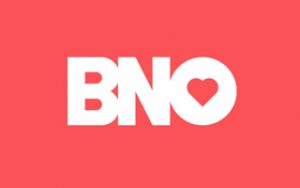
Historically, small agencies have been on the outskirts of the advertising landscape but times are changing. Madison Avenue and Main Street are no longer inherently parallel roadways. In between the alarmist headlines predicting “The Agency Holding Company Model is Dead,” and hailing the “The Rise of the In-house Agency,” smaller agencies are ascending through the upheaval and capitalizing on new opportunities. Moving at the speed of the marketplace, agencies that are smaller and more nimble, with a depth of passion and great creative, are carving out a place in the industry.
What’s driving change? Speed-to-market, a value shift that great ideas can come from anywhere, and the ability to react quickly. Businesses are opening up to non-traditional approaches and smaller agencies offer unique differentiators, while also placing more value on concierge attention and faster results. The global agency networks/collectives that have dominated the industry aren’t going anywhere, well most aren’t, however, they’ll need to get used to less elbow room. Smaller agencies are showing up and proving themselves capable of delivering on million-dollar accounts.
The Avis “We Try Harder” campaign by Doyle Dane Bernbach brilliantly captured the underdog mentality. This ably describes quality smaller agencies that promote an environment where intrapreneurs and changemakers dig deep and come together as a team. Some argue that this kind of attention can only come from an in-house agency, i.e., the best brand work can only come from within. However, disruption moves the needle forward and that’s much harder to do when you are trying not to get mired in the company line. No doubt, there will be an elite shortlist of in-house agencies that endure, but the headwinds are strong for the vast majority. In contrast, smaller agencies can go deep into a category or vertical, becoming subject matter experts. A good independent agency will embrace embedding themselves into a client’s DNA to become partners fully invested in seeing the client succeed and pushing their brand forward. The independent agency can also maintain objectivity and focus on new perspectives without fear, which is another concern raised about in-house agencies.
As clients react to real-time consumer expectations and analytics, the need for talent, devotion, and speed from their agency partner is greater than ever. On the agency side, no matter the size, attracting and keeping talent is key. Small agencies are changing the playing field by showing that big agency networks and collectives don’t have a monopoly on talent. Scale yes, but talent, no.
Cultural fragmentation, media fragmentation—hyperbolic headlines aside, the fragmentation of the agency world is less about the alleged demise of the holding company model, and more about the democratization of great thinking. The entrance of smaller agencies into the big-league ecosystem is part of a cultural shift but as with any size agency, you still have to prove your worth each and every day. We are BNO, we try harder.



